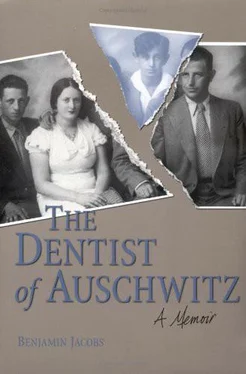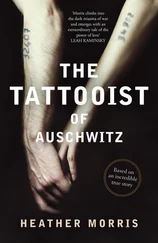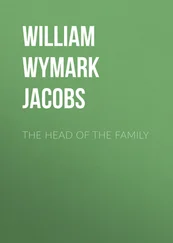With heavy heart, I recalled then what our uncle Shlomo predicted when we had talked about the Germans. He shook his head, saying, “God help us all.”
It was dusty and hot when at dusk we drove off the road and stopped for the night under a stand of isolated trees. This attracted others, and we soon had a lot of company. In the rumors of the night we heard that the Soviets had been occupying eastern Poland. That eventually turned out to be true. Those who tried to flee to the Russians were turned back. “Go home,” they were told. “Before long we’ll come to you.” The 1939 “mystery agreement” between Ribbentrop and Molotov became perfectly clear now, but no one believed that those two long-time enemies would stay on good terms for long. Throughout that night, thoughts of the Nazi’s ridicule and threats kept me awake. I asked myself the same question over and over: “Are we people of a lesser god?”
Thanks to the Chmielinskis’ kindness and generosity, we arrived home safely. Although nothing had changed in our house, the Nazis had nevertheless made their authority felt in the village. On the second day of their occupation, the Germans, at random, hung ten men on the gallows, while the rest of the people had to stand by and witness it. Their aim was to discourage any resistance. One of those executed was my best friend, Szymon Trzaskala.
On September 27 Warsaw fell. In a way we were happy the war was over, or so we thought. Annexing the Corridor and Warthegau was one of the Nazis’ first territorial grabs in Poland. Otherwise, except for food shortages, little changed initially. To win the Polish people’s cooperation in repressing the Jews, Radio Warsaw fed outrageous lies to them. Someone once said, “Blatant falsehood, if repeated often, eventually seems to be the truth.” So it was.
Before long Polish publications, as well as Jewish ones, were shut down. The eight-page tabloid that appeared in their place was filled with nothing more than bulletins and stories about the persecution of Germans in Poland before the war. It was the Germans’ attempt to justify their occupation. When all our radios were confiscated, we knew only what the Germans told us. The rest of the world became a remote place.
Hans Frank became the governor of Warthegau, and Herr Schweikert was to be our county’s administrator. They quickly enacted a number of directives that restricted Jewish freedom. The rules were sometimes so murky that anything that wasn’t explicitly allowed for us we had to assume was forbidden.
The last time our family was together for a celebration was in December 1939. It was during Hanukkah, the miracle of lights. But suddenly the sky reddened. It seemed as if the whole town was afire. Terrified, we learned that the Germans were burning down the Jewish synagogue and its two adjoining prayer houses and destroying the Torahs. The village Jews were devastated. The orthodox Jews rent their garments and sat shivah in mourning. Each subsequent December reminded me of this, our last and saddest holiday together.
Each day the governor imposed more restrictions on us. Only six people were allowed to attend funerals, although ten were needed for a prayer service. A new curfew barred us from the streets between 7:00 P.M. and 8:00 A.M., and it was so strictly enforced that some Jews were shot. We were limited in what we could buy and where we could buy it. Since our avenues to the farmers were cut, even those of us with money couldn’t buy much with it. Our few non-Jewish friends, those who were still willing to help us, were prohibited from doing so. Soon all Jewish homes had to display the Star of David, and all Jews six years of age and older had to wear it. Not sparing us another insult, the German word for Jew, Jude, in Hebrew-style letters had to appear inside the star. Our own emblem was to be our badge of shame. Then our use of the sidewalks was forbidden, forcing us to walk in the gutters. The Germans amused themselves by driving their vehicles at us. Bearded Jews became their prime targets. They cut or plucked the beards or set them on fire. All our gold and silver was ordered confiscated, and withholding any was punishable by death. Physical brutality now occurred daily.
One December night we woke to a violent pounding on the door and a order to open it. At first we didn’t answer, hoping the intruders would leave. They threatened to break down the door. Because males were primary targets, Mama went to the door. “Who are you? What do you want from us?”
“Open!” they repeated, pounding. “Weapons inspection.” We knew the inspection claim was just a thin excuse, but refusing to open the door would bring more wrath. Mama unlocked the door and let in what seemed to be four German postal employees. Mama looked relieved. “Jews?” one asked. Mama didn’t answer.
While three of them went roaming around the house, the fourth asked Mama where our guns were. She shook her head. “There are no guns in our house,” she answered.
Nearby in the foyer, where Grandpa slept, one asked him the same question. “Where are your guns?” The man peeked under the bed and found my dental instruments in a small box. A triumphant smile widened on his face as he lifted it up and shouted, “Was ist da drin?”
“Those are my grandson’s dental tools,” Grandpa answered.
“Dental tools?” he blurted in disgust and slammed the box into Grandpa’s face. As my instruments scattered, my grandfather shrieked.
In the meantime, another one of them had been cursing my father. “You Jews are the cause of all evil. You wanted this war, and you’ll have to pay for it.”
My father, his face white, protested quietly. “See for yourself. We have no weapons.” But his words fell on deaf ears. Even a confession from him wouldn’t have changed their minds. They were here for one purpose, to castigate and beat up Jews.
The man then hit Papa in the head with his bayonet. When I saw blood dripping down my father’s face, I thought he had been killed. Another German kept shooting bullets into our furniture and mirrors. The third slapped my brother in the face. Then he turned to me. “Auch Jude?” he bellowed, as if to assure me that I also deserved a beating. Terrified, I pushed my body into a corner, dropped to the floor, and pulled my knees up to my chest. I covered my face, hoping to escape the worst.
“Leave him alone. Don’t you see he is not quite there?” I heard another say to him. I did not escape entirely. He landed his boot on my behind, kicking me a few times. Otherwise he let me alone.
Then they left. The nightmare was over. Josek’s nose was broken, Papa’s forehead required several stitches, and Grandpa lay bloodied in the foyer. Pola tended to Grandpa. Mama kept placing wet towels on Papa’s head and muttering, “They were just plain post office workers.” She sighed. This was too unthinkable and too cruel. In spite of my twenty years, I was still too naive to understand that people could carry so much hatred for others. Then I thought of the golem story, which dates back to the Bible and the Talmud and has been retold throughout the centuries: In a mystical rite, invoking the Divine Name, a wise man gave artificial life to a human body made of clay or wood. This soulless body was then ordered to do tasks blindly. The golem was the perfect metaphor and offered an answer to my questions. “Who are we? What have we done? Why are we so despised?” I asked myself. That night something changed my theory of humanity forever. I realized that our lives had been irreparably altered.
One woman in the village admitted that she had heard Germans asking where Jews lived. “Someone must have pointed you out,” she said.
In Poland, the Volksdeutsche, ethnic German living outside Germany, seemed to have sold their souls to the Führer. The best example was our long-time neighbors and friends, the Marxes. Mrs. Marx now defended the Nazis in whatever they did. She didn’t even come to see us after that night. From that time on we lived in fear. Each time we heard someone outside at night, we wondered if Germans were coming to terrorize us again. This was not the first nor was it the last time that Jewish homes were invaded at night and people were beaten. The fear of that night terror became our steady companion. Killing Jews was now permitted and even encouraged.
Читать дальше












